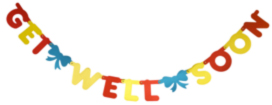Cancer
To get general information about childhood cancer, please visit the zero to six part of this course.
Children who have cancer form a very special group. These children grow up knowing that they may not reach adulthood. They are children who take a lot of medications, some of which have serious side effects. They are children who may go through chemo- or radio-therapy, which also have serious side effects. Because of that, many children with cancer miss a lot of school days. When they do attend school, they may have low energy and may not be able to participate in some classroom or playground activities. They may not be able to participate in physical education classes. Teachers need to be aware that certain arrangements may need to be made for these children. Such arrangements include:
- Making outlines of class lessons and mail or email them to the family, when the child misses more than one or two days of school. Communication between the teacher and the parents is essential. Teachers need to know whether or not it is appropriate to send these lessons or outlines to the family. That is, if the child has had a particularly difficult chemo-therapy session, and is having a hard time recovering from it, sending the lesson to the family may not be appropriate, because the family and the child would be dealing with the medical aspect of the child’s disease. It is essential that teachers ask parents whether or not the lesson or lesson outline should be sent to them;
- Writing a “get well soon” card, getting all the students to sign it, and sending it to the family (Fig. 1);
- Periodically mentioning the child who is absent in order for his or her classmates not to forget about him or her, and also in order for the children who may be worried about their classmate to know how he or she is doing;
- Talking about and discussing childhood cancer in the classroom. Teachers can even read a children’s book about cancer, to the entire classroom. One such book is “I Have Cancer”.
Figure 1. Get well soon!
Children who have cancer do not usually have Individual Education Plans (IEPs). They are usually monitored by the school nurse, who watches their development and behavior very closely. The school nurse could also help children with cancer with any medication they may have to take at school. In order to make sure that children who have cancer are safe at all times, it is recommended that teachers:
- Communicate frequently, or as frequently as possible, with the child’s parents;
- Have a plan ready, in case the child has to be rushed to the hospital;
- Inform the child’s classmates that the child may appear very tired at times (this should be mentioned very sensitively. Children need to understand why their classmates may not always be able to participate in certain activities with them).
Some children who have cancer (Fig. 2) may experience sadness because they know that they have a very serious disease that may end their life. Others may be sad or frustrated because they may not be able to participate in certain types of activities. It is very important that the child’s mental health be monitored, and that regular sessions with the school counselor be provided if and when they are needed. For children who experience serious levels of sadness and, perhaps, depression, regular sessions with a clinical psychologist may be recommended.
Figure 2. With cancer
To learn more about childhood cancer, please visit the birth to six section of this course.
Some children who have cancer get cured from it. They grow up to become fully contributing members of society. Others pass away in their teens or early adult years. It is important to keep that in mind when working with a child who has cancer.


0 comments
Kick things off by filling out the form below.
Leave a Comment